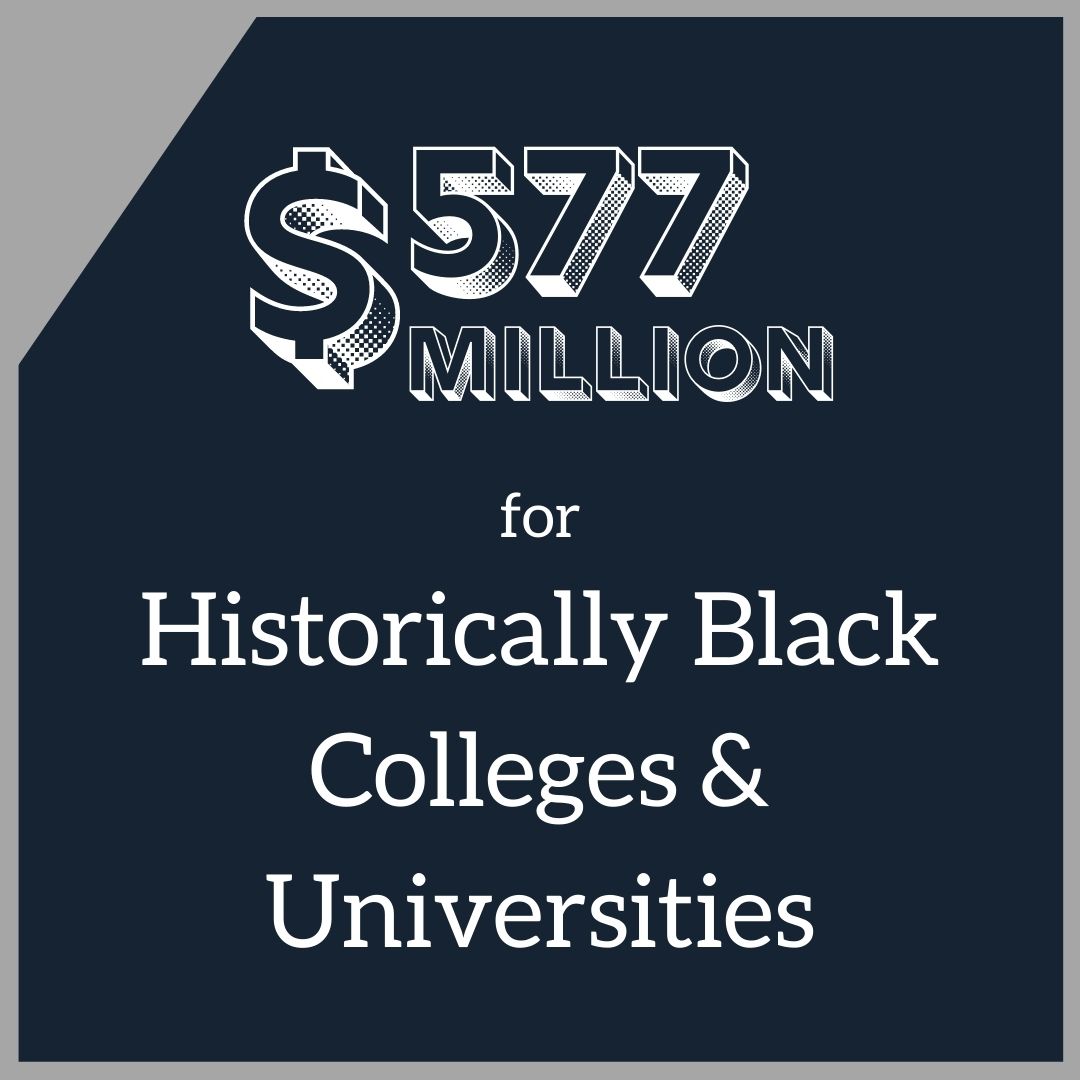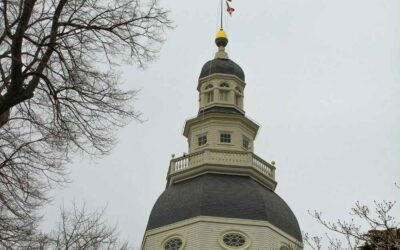By Derrick Covington, Government Affairs Specialist

On March 24, 2021, Governor Hogan signed into law Senate Bill 1, Historically Black Colleges and Universities – Funding, a bill that will settle a 15-year long lawsuit between the historically black colleges and universities (HBCUs) of Maryland and the state.
HBCUs have been important institutions of higher education in the United States for black people since their inception. These schools were created out of necessity, as many predominantly white institutions either had extremely limited quotas for black students or did not accept black students at all. The majority of HBCUs were established in the South after the Civil War, with the main objective of educating black people. The Higher Education Act of 1965 defines an HBCU as “any historically black college or university that was established prior to 1964, whose principal mission was, and is, the education of black Americans, and that is accredited by a nationally recognized accrediting agency or association determined by the Secretary of Education.” Through the Higher Education act of 1965, a program for direct federal grants was established to support HBCUs’ academic, financial, and administrative capabilities.

The Morrill Acts of 1862 and 1890 also allowed for the creation of land grant colleges using the proceeds of federal land sales. These land grant schools receive federal funding annually for certain activities such as research and outreach. Many HBCUs were founded after the second Morrill Act was passed, as schools in the South were segregated and excluded black students from land grant colleges during the passing of the first Morrill Act. There are four HBCUs here in Maryland: Bowie State, located in Bowie, Coppin State and Morgan State, both of which are research universities in Baltimore, and the University of Maryland Eastern Shore, a land-grant research university which is in Princess Anne. While HBCUs make up a small percentage of the colleges and universities in the United States, and normally have small student populations, they are nonetheless instrumental in providing post-secondary education as well as developing the skill sets of young professionals.
Despite being an essential part of education for thousands of students, HBCUs did not receive the same funding or treatment as predominantly white institutions, or PWIs, in the state. Alumni and boosters of the four Maryland HBCUs filed a lawsuit challenging Maryland’s treatment of the state’s historically black colleges and universities. They claimed that the HBCUs in the state were put at a disadvantage because they were grossly underfunded in comparison to PWIs. In 2013, a federal judge found that the four schools were not underfunded, but that Maryland allowed PWIs to copy specialty academic programs that were first found at HBCUs. As a result, PWIs were able to attract students of all races and effectively resegregate the historically Black schools. As a result, these HBCUs found it harder to earn money.

After this ruling, the state and the HBCU coalition entered mediation, but negotiations failed many times after the two sides could not agree on an amount. In 2018, the state offered $100 million, then the state’s final offer of $200 million came in 2019. Determined to reach the desired amount of $577 million, the coalition decided to turn to legislators to get the money they wanted. In 2020, the Maryland General Assembly passed a bill to require Maryland to settle the case for $577 million over 10 years, but Governor Hogan vetoed the bill in May 2020 due to the coronavirus pandemic. Finally, ending a 15-year legal battle, legislators passed Senate Bill 1/House Bill 1 during the 2021 Legislative Session which allotted the coalition its desired amount of $577 million.
In addition to the supplementary $577 million in general funds, Senate Bill 1 (SB 1) creates a HBCU Reserve Fund to hold unused funds at the end of each fiscal year and increases general fund spending between $60.8 million and $61.7 million each year from fiscal year 2023 through 2026. The legislation also establishes a program evaluation unit in the Maryland Higher Education Commission (MHEC) to evaluate new programs and substantial program modifications. The bill also requires USM William E. Kirwan Center for Academic Innovation, in collaboration with UMUC Ventures, to work with the State’s HBCUs with the goal of developing and offering online academic programs. The measure is incredibly beneficial to the HBCUs in the state, as they receive more funding that can lead to more opportunities and resources. Research institutions like Morgan State now have the capacity to invest more into their research programs, which would in turn entice more prospective students to attend. The schools can also create new programs that were not options in the past, widening the scope of students who might be interested in going to an HBCU.
Historically black colleges and universities have been seen as safe spaces where black people can not only receive a high-quality education, but also be a part of a nurturing environment, especially with the current racial tension that is happening across the country. These incoming funds could help allow for more students to be on campus, as Morgan State and Bowie State have seen more applications than they have in the past. People want to be on HBCU campuses — it is only right that these schools have the resources to accommodate them.




